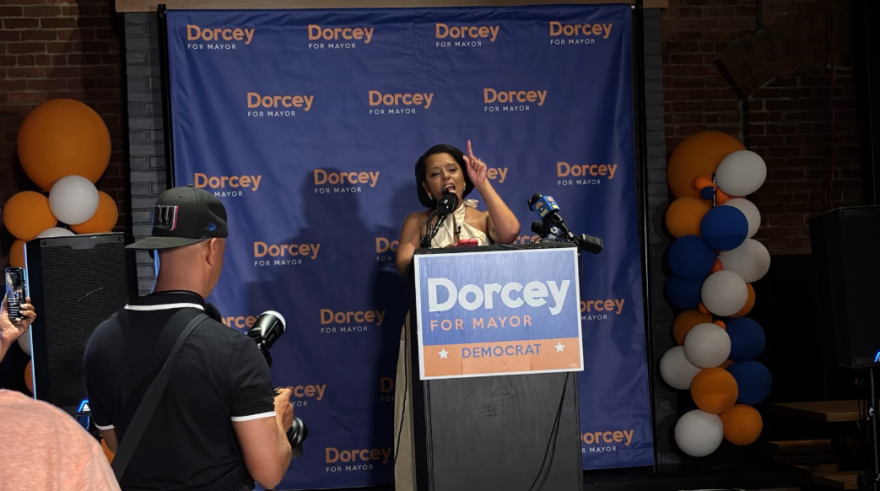Two of upstate New York’s largest cities – Syracuse and Albany – could elect their first Black mayors this year.
Syracuse Deputy Mayor Sharon Owens and Albany's chief city auditor Dorcey Applyrs both claimed victory Tuesday in their city’s Democratic mayoral primaries.
Voter enrollment in both cities is heavily Democratic, so Owens and Applyrs have a good chance of beating their Republican challengers in November. Doing so could herald a new era of leadership for diverse communities that have struggled to address racial and wealth disparities.
“While we’re not at the finish line yet, Syracuse, you did make history,” Owens said to her supporters Tuesday evening. “I am a Black woman who has worked for this community since the day I got here, and that is not going to change.”
Owens and Applyrs’ experience in local government make them perhaps uniquely positioned for breaking through. Owens ran her candidacy largely on being second-in-command to Syracuse Mayor Ben Walsh the past eight years. Applyrs worked as a Common Council member before becoming the city’s auditor.
And their pitches to reduce the cost of living and close the gaps of various inequities did not fall on deaf ears. City leadership has been attempting to tear down the aging I-81 highway in downtown Syracuse, which racially and economically segregated the city’s Black communities for decades. Both Albany and Syracuse, meanwhile, have child poverty rates at double the national average for similarly sized U.S. cities.

“We are people who will always be 10 toes down for Albany, people who have come together, who have a shared belief in democratic principles and values that government should work for everyone, regardless of which ZIP code you live in, regardless of the color of your skin, regardless of how much money you have in your account, even if you have an account,” Applyrs said. “Regardless of who you love and regardless of who you pray to, Albany should and must work for all of us.”
That's a message that has continued to shape mayoral primaries upstate. In Rochester, which elected its first Black mayor in 1993. And in Buffalo, which followed suit more than a decade later in 2005.
“Black people are one of the largest, most consistent constituencies within the Democratic party, and yet the history for the Democratic party and being equitable when it comes to representation is, largely, a very complicated question,” said Clem Harris, director of Utica University’s Department of Africana Studies and an associate professor of history.
“These are black women who are breaking a historical barrier, but also as candidates who are not just representing a historically marginalized constituency, but also the ability to be a coalition candidate.”
Owens addressed that reality directly in her victory speech.
“This moment is for everyone who thinks that they don’t see themselves in the future of Syracuse,” Owens said. “Well I got news for you: Right now, you are a part of the future.”



